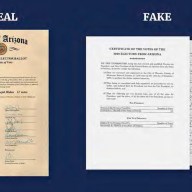 Pakistani Shiite Muslim women.
Pakistani Shiite Muslim women.
Credit: Getty Images
Bushra shouldn’t be alive. One day, after eight years of marriage and three children, her husband, aided by his mother and another relative, tied her up and poured acid over her. Then they tied her scarf around her neck, hung her from the ceiling and left her to die in front of her two youngest children. To make sure Bushra really died, they set the house on fire. The reason: returning from a visit to her family, Bushra had brought her husband’s family expensive gifts rather than cash. They hadn’t mentioned they expected cash.
Thanks to kind neighbors, Bushra survived. But like every acid attack victim, she looked like a monster. Of course, condemning victims to a life as monsters is what men intend when they throw acid at their partners and relatives. In Pakistan, it’s an easy crime to commit: acid is cheap, a bottle of it costs some $0.30.
But today Bushra, now 43, has a good job – as a beautician in an upscale salon here in Lahore, a bustling city of some 10 million near the Indian border. “Since I walked in here I’ve never looked back,” she tells me as I visit her. Bushra belongs to the sisterhood of Pakistani acid attack survivors who’ve been helped back to life by Musarrat Misbah, the owner of Pakistan’s Depilex chain of beauty parlors.
I’m ashamed to admit that at my first meeting with Bushra and her fellow attack survivors, I reacted with shock and averted my eyes. But after spending time with them, all I felt was awe at their courage and lack of bitterness. Some of them are outgoing, some shy, but they’re among the most formidable people you’ll ever meet. And I’m humbled by their incredible kindness. “Your hand looks tired,” said Bushra as I was writing down her answers. “You need a hand massage.” She began to massage my hands, arms and neck. This is a woman who was almost dead, and now cares about my weary hand!
Misbah, a stunning woman in her early fifties, never set out to help acid victims. “I’m a beautician through and through,” she tells me. “I love my job. I’m always the last one to leave at night.”
One night as she was closing her salon, a woman in a burka showed up and curtly said she needed help. When she pulled her veil back, Misbah saw a face so disfigured that she fainted. Since then, the beauty entrepreneur has become Pakistan’s unofficial protector of acid attack victims.
The 30-some Depilex salons now double as offices for her Smile Again Foundation, which helps survivors get reconstructive surgery and then trains them in professions so they can re-enter society. “Without vocational training, where would these girls go?” asks Misbah. “Back to those men who threw acid at them?”
To date, the Smile Again Foundation has helped over 500 victims. But it’s only a small share of the estimated 9,000 women who were acid-attacked between 1994 and 2001. The assaults continue despite the passing of a law banning the practice two years ago. Acid attacks are common mainly in central and southern Asia but also occur worldwide.
“They often come from a poor background, and when you’re poor and uneducated, you often don’t know the difference between right and wrong,” reflects Hina Dilpazeer, Pakistan’s leading TV actress, who campaigns for victims. “If society’s poor get an education, I’m convinced attacks will drop.”
Many of Smile Again’s graduates now work in Depilex’s parlors, while others have are nurses and call center workers. “The foundation is my home and family,” says Bushra, who hasn’t seen her children since the attack. “People make faces when they see me outside. But here at the salon I’m safe, I’ve gained clients’ respect.”
But the road to recovery is rough, as not even the 35 required operations result in a natural face. “Reconstructive surgery is very expensive,” says Misbah. “Donors prefer supporting schools.” Threats have forced her to hire a bodyguard.
For survivors like Nasreen, a 27-year-old from rural Punjab, life is essentially over. When she was 13, three middle-aged daughters of wealthy neighbors taunted her, and when she finally responded in anger, their fiancés threw acid on Nasreen as she slept. The attack left her blind. But when I meet Nasreen at the Depilex salon in Lahore, her nails are beautifully done and she sports a stylish hairdo.
“This is like a haven,” explains Nasreen. “Everyone else shuns me.” Smile Again pays her a stipend as she can no longer work in the fields: her attackers still live next door after paying their way out of a 25-year prison sentence.
At any given time, between five and seven women stay at Misbah’s home while awaiting surgery or receiving training. But Misbah feels insufficient: “I just hope God gives me strength to help more girls. I want to build a shelter where I can live with them. Sorry if I sound like Mother Teresa.” However, with acid attacks a persistent problem not just in Pakistan, the world needs more Mother Teresas, even though other groups are helping victims in Pakistan and overseas.
And though thousands of acid attack survivors desperately need help, Misbah is making a huge difference in individual women’s lives. These days, Bushra puts on lipstick and beautiful clothes. Her brother-in-law then tells her, “Why do you do that? You should just sit in a corner.” To which she responds, “You have no power over me.”
Q&A
“Acid attack culprits will be tried as terrorists” — Begum Zakia Shahnwaz, Senior Advisor to the Chief Minister of Punjab – the top-ranking female politician in Pakistan’s most populous state
Metro: What is Punjab doing to protect women?
Shahnwaz: Last year we proposed a comprehensive bill, which is very likely to be passed. It includes violence against women. It will tell the men that this animalistic behavior can’t go on.
For acid attack victims we will provide physical and psychological care, and the perpetrator will be tried in a terrorist court, where cases are dealt with swiftly. And acid attacks are terrorist acts. The bill also includes changes in the inheritance law, a higher female quota in the public sector, anti-harassment legislation and high-standard day-care centers. And every college in Punjab will be required to provide two women-only buses.
Pakistan’s Benazir Bhutto was the first woman elected to lead the government in a Muslim country. On the other hand there are acid attacks. When it comes to women’s situation, is Pakistan advanced or way behind?
In North America and Europe, which are far more advanced than us, women are battered and abused. Our fundamental problem is that we haven’t given education to the masses, and abuse also stems from economic frustration. But bear in mind that many of our powerful women are beaten by their husbands, too. The difference is that the strong woman can walk away and the poor woman can’t. However, men should remember that when they get old their wives will return the abuse. When the children are young, they can’t protect her, but as adults they will.
Are you optimistic that women’s situation will improve?
Yes. Everyone here says that politicians are corrupt, the army is bad, NGOs are bad, the press is bad. But not everyone is bad or corrupt. There are people who want to help women.
Sarwari: From pariah to family breadwinner
Sarwari always covers her head and wears dark sunglasses. When she removes her veil, a head burned beyond recognition emerges, but it’s progress. For 20 years, Sarwari’s burned chin stuck to her chest and her eyes bulged out like a frog’s.
“One year after I got married to my husband, he wanted to take a second wife,” she tells me when I visit her in the one-room house outside Lahore where she lives with her brother and his family. “I said, ‘No, just divorce me’.” Her husband poured acid over her. Even so, Sarwari’s mother didn’t let her file a case against her husband: he’s her first cousin.
One year ago, a relative heard about Smile Again and brought Sarwari there. Surgery detached her chin from her chest and gave her eyelids. She’s now been able to start a bottle-cap business. “It gives me an income, so I can give my brother’s family money,” she says. “But I want to be more financially secure, because my brother is getting married, too. If I can provide for his family his wife will be nice to me.”
In fact, Sarwari, now 40, commands respect as she’s the family’s breadwinner. But she has received taunts from her sister-in-law’s sisters, who said, “Your husband’s new wife is beautiful!” But, Sarwari explains, “I said, ‘What are you talking about? I’m financially secure, I provide for other people. I’m beautiful’.”
Happy ending: Abuse led her to self-immolation but Urooj has found a new life
Urooj tried to burn herself to death. “My in-laws tortured me,” she tells me. The abuse worsened when Urooj didn’t immediately get pregnant. “My husband would say, ‘You’re infertile, what’s the point of you being alive?’” she says. After Urooj got pregnant, she gave birth to a girl: a misfortune.
Urooj survived the burns, with damage to 70% of her body. Her parents blamed her, while her husband remarried. Urooj hasn’t seen her daughter again. But a friend had heard of Smile Again and brought Urooj there. She now works as a beautician.
When she met a man online, they decided to get married, much to her parents’ ire. “They said that I should have accepted my fate and continued living with my first husband,” she says. “I told them, ‘I’ve lost everything. I don’t want such parents’.” Today Urooj, now 32, has a full-time job. But such happy endings are rare for acid attack victims. Of the 500 women assisted by Smile Again, only eight have married. “In the early years after the attack they don’t dare to think about it,” says Misbah. “But when they become more confident they start thinking about it.
The problem is, who would marry them?” But these women are fighters. They’ve clawed themselves back from near-death, so they can dream of romance, too. In my first visit, on Valentine’s Day, all the victims-turned-beauticians in Misbah’s salon wore bright red lipstick.
Supporter’s to do list
An Italian surgeon emailed Musarrat Misbah, promising to treat three survivors free of charge. But many Pakistani doctors instead charge Smile Again a higher fee. Here’s how you can help.
• Donate. By PayPal.
• Volunteer. At one of Smile Again’s locations.
• Hire. Provide employment to the survivors.
• Encourage. Plastic surgeons to volunteer their services.
• Like. Smile Again’s Facebook fan page.
• Organize. Surgeries & lodging for the survivors, and raise money for their travel expenses.
• Teach. If you’re in any other profession that can be taught to the survivors: volunteer to teach them, thereby helping them to earn a living.
• Pressure. Put pressure on your government to ask Pakistan to ban sales of acid.
Proud Anam, 16: ‘I’ve only cried once in past year’
Anam, 16, is a beautiful girl. That is, the right side of her face is beautiful. The left side has been destroyed by acid. “I was walking to school with my father one day, when I heard a man from the neighborhood call my name,” she recalls. “I kept walking, but then he shouted, ‘If you don’t stop I’ll throw acid at you’. I kept on walking, but then I felt something burning on my back, and when I turned around to see what it was the man threw acid on my face and body.”
After an entire year in the hospital, Anam was released. But she became a recluse: she didn’t leave the house and certainly didn’t want to look at herself in the mirror. Two years later Anam is a self-confident young woman who is studying for her high school graduation while training as a beautician with the Smile Again Foundation. “I used to be very angry and say why me?” she explains. “But when I look at the kind of torture the other women here have gone through I have nothing to complain about.”
Anam’s attacker had given Anam’s parents a marriage proposal for her older sister, but the parents and sister had rejected it. The family suspects that he had wanted to harm the sister, but when he only found Anam he attacked her. Anam will have surgery, but like other acid attack victims, she will be marked for life. Even so, she makes a huge and successful effort to remain upbeat. “I’ve only cried once in the past year,” she says. “That’s when my attacker was sentenced. He only got four years in jail.”
















